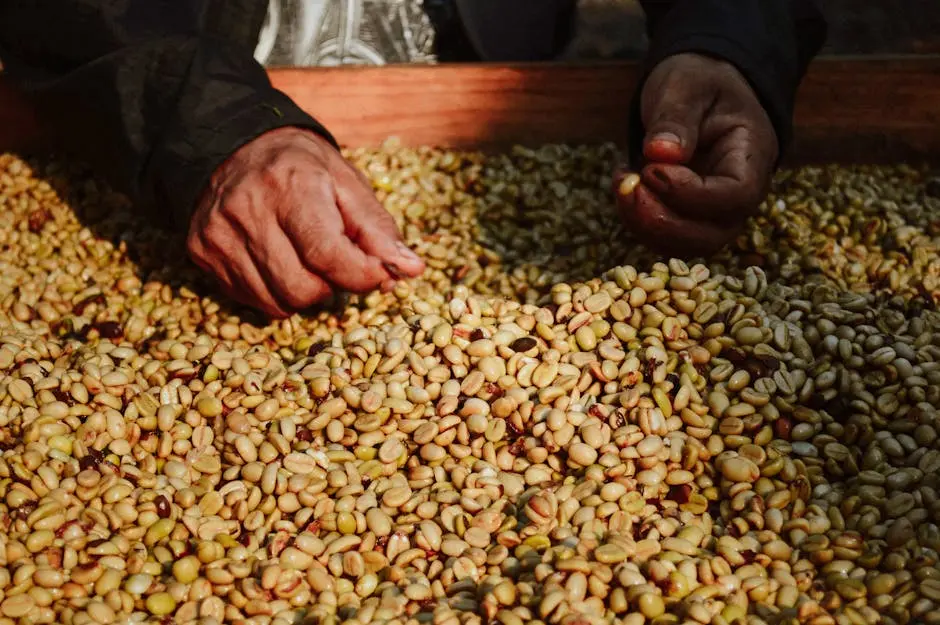Brazilian coffee is renowned worldwide for its unique flavors and rich history. As the largest coffee producer, Brazil has a captivating story that intertwines with its cultural and agricultural heritage. In this blog, we will delve into the intricate tapestry of Brazilian coffee, from its historical roots to its modern-day prominence, exploring the factors that contribute to its global acclaim.
The Origins of Coffee in Brazil
The story of Brazilian coffee began in the early 18th century when coffee plants were introduced. Legend has it that in 1727, Francisco de Melo Palheta planted the first coffee tree using seeds smuggled from French Guiana ^1^. These initial saplings thrived in Brazil’s conducive environment, which offered the ideal mix of wetness and warmth. By 1820, coffee had become Brazil’s most exported product, setting the foundation for its future domination in the coffee world.
Brazil’s unique climate and soil conditions provided the perfect environment for coffee cultivation, setting the stage for its ascendancy. The sprawling plantations stretched across the country, and by the 19th century, coffee had positioned itself as a symbol of Brazil’s economic and social identity. The expansion of coffee farms was so significant that it reshaped the Brazilian landscape both physically and culturally.
The marriage of geography and coffee in Brazil has not only defined its local landscapes but also played a pivotal role in shaping a distinctly Brazilian identity around the drink. This relationship is celebrated today in the global coffee arena, where Brazilian coffee remains a sought-after experience for connoisseurs.
The Impact of Geography on Flavor Profiles
Brazil’s vast geographical diversity is a blessing for coffee cultivation, affecting the flavor profiles of beans grown across its territories. The high-altitude regions produce beans with bright acidity and floral notes, while the warm, tropical climates yield coffee with rich, chocolatey undertones. This variety offers a wide spectrum of flavors, making Brazilian coffee unique and versatile.
The rich and nutty flavors characteristic of many Brazilian coffees is a result of the coffee plants’ interaction with the unique conditions of the country’s extensive tropical savanna. This biome imparts a distinctiveness to the beans that is hard to replicate elsewhere, offering coffee drinkers a taste of Brazil’s natural diversity in every cup. These attributes have helped Brazilian coffee become a staple in roasteries and cafes around the globe.
Cultural Significance and Economic Influence
Coffee in Brazil is not just a drink; it’s a cultural icon deeply interwoven into the nation’s fabric. From the bustling farms to the city cafes, coffee is a communal ritual. Brazilians partake in café da manhã, literally meaning ‘morning coffee,’ which underscores coffee’s foundational role in daily life ^2^. The national favorite, cafézinho, is a symbol of hospitality, embodying the warmth and richness of Brazilian culture.
Economically, coffee has been a driving force behind Brazil’s development. The sector provides millions of jobs and has been pivotal in the country’s historic economic growth. Coffee revenues have enabled substantial investments in infrastructure and industry, making coffee one of Brazil’s most crucial exports. Its prominence is reflected in the 220,000 coffee farms that pepper Brazil’s landscape, testament to the sector’s significance.
Moreover, coffee’s economic influence extends beyond borders, with Brazil being the largest supplier of coffee to countries such as the United States. This international demand has fortified Brazil’s status as a coffee powerhouse, allowing it to assert its brand and traditions within the global market.
Modern Innovations and Sustainability Efforts
In an era where sustainability is at the forefront, Brazilian coffee producers are incorporating innovative methods to balance tradition with modernity. Eco-friendly farming practices are increasingly being adopted, focusing on reducing deforestation and preserving biodiversity. As the global leader in coffee production, Brazil emphasizes sustainable practices that ensure the long-term viability of coffee resources.
Fair trade initiatives are gaining traction among Brazilian coffee farmers, ensuring fair wages and better working conditions for those who labor tirelessly to bring coffee to our tables. These initiatives focus on empowering local communities and promoting equitable practices, resonating with a growing global audience that prioritizes ethical consumption. Brazil’s dedication to sustainability is not only a promise to preserve its coffee legacy but also a commitment to environmental stewardship.
Tasting Brazilian Coffee Around the World
Brazilian coffee’s illustrious history and diverse flavor profiles have propelled it into international acclaim. Cafes and roasters everywhere celebrate its unique attributes, allowing coffee lovers to embark on a sensory journey that spans the flavors of the Brazilian landscape. From the floral and fruity to the bold and nutty, Brazilian coffee continues to captivate palates worldwide with each region offering a unique contribution to the global tapestry of coffee.
The Art of the Bean and Leaf showcases Brazilian coffee, inviting coffee aficionados to savor the rich tapestries that these beans have to offer. In general, Brazilian coffee presents an ensemble of flavors that both surprise and delight. It continues to affirm its place in the hearts and cups of consumers across the globe.
A Legacy Brewed in Every Cup
Brazilian coffee is more than just a beverage; it represents a deep connection between the land, its people, and the traditions passed down through generations. The rich heritage of Brazilian coffee continues to grow and evolve, shaping the global coffee market and enchanting coffee lovers around the world. As enthusiasts savor their morning cup, they participate in a centuries-old story that celebrates sustainability, diversity, and the art of cultivation. For those looking to learn more or try these rich flavors, do explore our wide range of products and become a part of the Brazilian coffee legacy.


